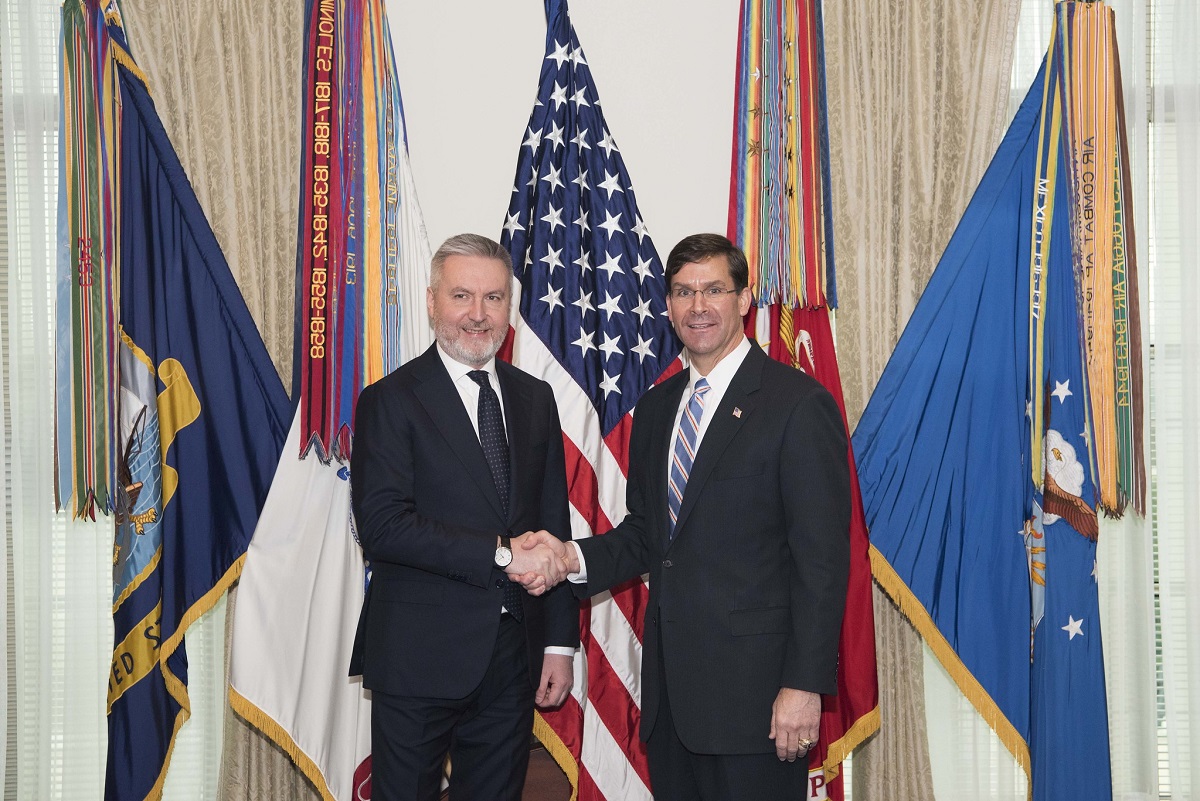“All US presidents have always lamented that we [NATO allies] spend too little on NATO. During election period, [Mr.] Trump is forced to act.” This is how Italian general Mario Arpino, former Chief of the Italian Defence Staff, interprets US president Donald Trump’s decision to withdraw roughly a third of the US troops stationed in Germany: a symbolic sanction meant as a domestic political stunt.
The move, announced on Wednesday by US secretary of defence Mark Esper, had been telegraphed last month by Mr. Trump and explained by him as a punishment for Germany, culpable in his eyes of not spending enough on NATO’s defence budget. 5,400 of the 11,900 troops will be relocated to other European countries, chiefly Italy and Belgium, while the remaining ones will be sent back home.
However, as ambassador Stefano Stefanini, senior advisor at ISPI and diplomatic advisor to the former Italian President Giorgio Napolitano, pointed out, the real reason behind Mr. Trump’s decision lies in the worsening of US-German relations, and not in the fact that Germany is not directing 2% of its GDP to NATO, a non-binding guideline target convened upon by NATO leaders and currently met by only 7 of the 30 allies.
Interviewed by Formiche.net, Mr. Stefanini highlighted that as far as NATO spending goes, “Germany is reaching 1.38% [of its GDP]. Italy stands at 1.22%, Belgium at 0.93%. If the move must punish who doesn’t spend enough for defence, there is little point in awarding those countries that spend less than Germany […] the second EU country by defence expenditure is being penalised.”
Mr. Stefanini also argued that the move clashed with the Pentagon’s declared aim of increasing the deterrence on Russia by stationing more soldiers nearer to it, a criticism also directed to the president by prominent US Republican senator Mitt Romney (albeit with sharper tones). This was echoed by members of Congress from both parties together with their condemnation of what they perceive to be an affront to a close ally, such as Germany is to the US.
However, as the ambassador noted, the redeployment will take months to be defined and years to be executed, at the expense of billions of dollars. Thus, if the US administration changes in November, it might be reconsidered.
As both general Arpino and ambassador Stefanini note, Mr. Trump’s decision might ultimately be a political stunt, hinged on the return of troops to the homeland and on the perceived punishment of a noncompliant ally. Withdrawing troops from a non-critical theatre and thus delivering on the electoral promise of “bringing the boys back home” could reinvigorate Mr. Trump’s seemingly faltering re-election chances without risking virtually anything.
US-German relations have been tense on other matters, such as Germany’s decision to keep buying 5G tech from Chinese firms such as Huawei and to receive natural gas from Russia via a gigantic pipeline being laid between the two countries, dubbed Nord Stream 2, currently under sanction by the US. Many are falling behind Washington on the Chinese 5G front, including France and Italy, with the notable exception of Germany.
Recently, Germany’s foreign minister Heiko Maas struck down Mr. Trump’s suggestion to re-invite back Russia into the G7, something Mr. Trump hoped would strengthen the anti-China alliance he’s trying to whip up. As argued by Germano Dottori, professor of Strategic Studies at Luiss University in Rome, Germany will not budge on Russia’s readmission until it stops its activities in Crimea and reigns in the separatists in Donbass.
Mr. Dottori explained that given that China remains Germany’s first commercial partner, it is understandable why Berlin will not allow the declination of the G7 into an anti-China front, also considering that the Russian themselves are seemingly not interested in this venture.
Nonetheless, a change in US leadership in November may as well prove insufficient in mending their relationship with Germany, which in turn means that the US troops withdrawal cannot be ruled out, should Joe Biden win the White House in November, argues Mr. Dottori.
Marco Bertolini, general and former commander of strategic and international operations, believes that Mr. Trump’s move finds its significance in the framework of the US’s Great Power Competition, namely the confirmation of its military supremacy with regards to China and Russia.
This assertiveness is necessary to counter Russian military activism in Libya and the Middle East, argues Mr. Bertolini, and to inhibit the reach of the Chinese Belt and Road Initiative (BRI), a commercial corridor of immense scope that has sparked the interest of many Western countries, chief among which is Italy.
By transferring the contingent, the US is actually sending a powerful message to its allies who seem less enthusiast to side with the US in matters other than the military. According to Mr. Bertolini, redistributing US resources to Southern European countries such as Italy will also reinforce the Americans’ reach in the region and in North Africa, where the French have been struggling to root out Islamic extremist in the Sahel region. AFRICOM, the US African operation, is currently headquartered in Stuttgart, Germany.
If the transfer really takes place, Italy could benefit of an added military contingent as well as a squadron of F-16 fighters. This, however, can happen only after “intense interlocution between allies”, says the Italian minister of defence Lorenzo Guerini, who also acknowledges the electoral reasoning behind the move.
Regardless, Mr. Guerini stressed how the relocation of some troops to Italy could actually help to reinforce NATO’s Southern flank, something he’s been pushing for. NATO carries out operations in and around Libya, as well as patrolling the strategically significant Mediterranean.
“Let’s get on with [the transfer] without making a tragedy out of it,” concludes general Arpino; “the cut is operationally irrelevant, and if Russia or China would really want to invade us, let’s rest assured that Uncle Sam will run to Europe for the third time and save us.”








